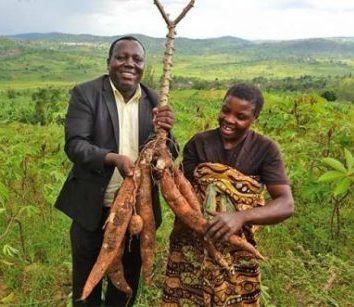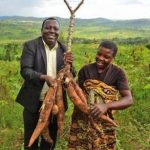
Musika, a Zambian agricultural non-profit, noted that over 25,000 farmers in Zambia – many of them women – are now growing particularly drought-tolerant varieties of cassava, up from 5,000 five years ago. Pamela Hamasaka, head of corporate affairs for Musika, said demand for cassava ethanol has surged in Zambia as companies rush to churn out more hand sanitizer to control the spread of the deadly coronavirus pandemic. Zambia has so far recorded close to 100 confirmed cases of the novel coronavirus, with three deaths. Public gatherings and non-essential travel have been halted, and in April the president declared use of face masks mandatory in public.
Currently, 250 tonnes of cassava flour a day are being turned into ethanol for hand sanitizer and other products sold locally or exported to neighbouring countries in the region, Hamasaka said.
“The advent of COVID-19… has pushed the demand for bi-products of ethanol high,” she said.
But some experts fear turning food crops like cassava into ethanol could hit the region’s food security as a COVID-19 global economic slowdown leads to more export bans.
Zambia’s Ministry of Agriculture projects the country will produce just over a million tonnes of cassava flour this year. The country has seen an average 6% rise in production annually over the last five years, according to ministry figures. Cassava is now grown by about a half-million small-scale farmers in Zambia, as part of a push to diversify agriculture beyond maize, the country’s drought-vulnerable staple, ministry officials said.





